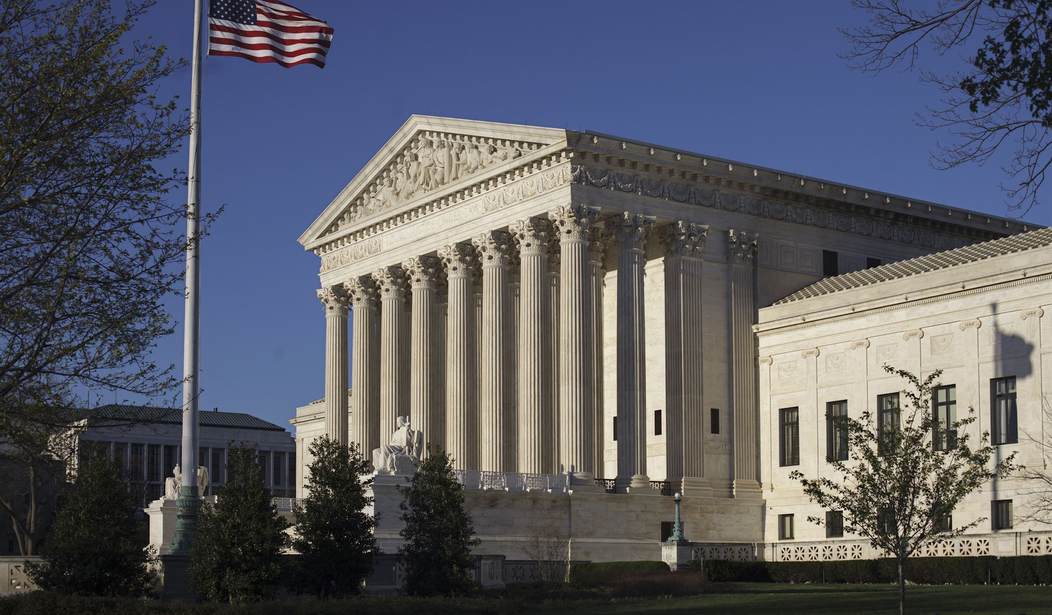There was an important federal appeals court decision handed down yesterday that prevents "a private right of action" on the Voting Rights Act. Since the Act's inception in 1965, individual citizens and groups have been able to challenge outcomes of redistricting laws based on harm to one minority or another.
The U.S. Court of Appeals found that only the federal government could bring a legal challenge under Section 2 of the Voting Rights Act. Indeed, the court found no specific language for a "private right of action" on voting rights cases, meaning that individuals and groups like the NAACP will be unable to sue based on the Voting Rights Act.
The Supreme Court will hear the case and even though the court's conservative majority has weakened the Act in the past, they're not likely to allow this kind of radical change to go forward. While no explicit language in the Act allows for a "private right of action," there is certainly an implied right given the subject is elections and the problems at the time the law was passed cried out for individuals to have the ability to sue.
In the meantime, Democrat's challenges in other redistricting cases could give them a big advantage in the 2024 election. They are likely to prevail in several of these race-based challenges, flipping red seats to blue based on where the lines are drawn.
There are challenges in a dozen states to redistricting lines drawn in 2020. In two states, North Carolina and New York, Democrats could pick up 8-10 seats when all is said and done. In many of those dozen challenges, only a single seat is in play. But those two states have the potential to flip control of the House to Democrats.
New York is the big prize. Originally the state's redistricting commission couldn't come to an agreement on a new map, leaving the state legislature to draw lines that, if enacted, would have destroyed the Republican Party in the state. But a state court judge redrew the map, giving the Republicans 4 additional seats. Now Democrats are suing again and trying to recapture as much of the old map as possible.
“New York is being looked at as one state that can provide more congressional opportunities,” said New York Law School professor Jeffrey Wice, adding, “each of these court battles matter [sic] as Democrats try to win their way back to a majority.”
Now, Democrats want the Court of Appeals to restart the redistricting process.
They argued that the maps should be redrawn by the commission, following a set of procedures in state law, rather than reusing the court-drawn map from last year.
Republicans said the court’s expert came up with politically balanced districts that shouldn’t be discarded.
“They’re asking for a do-over to try and gerrymander the state again, and it really flies in the face of common sense,” said John Faso, a former congressman who is advising other Republicans in the case.
When did "common sense" ever matter to the Democrats?
The Republican Party isn't dead in New York yet. The party recently won several key races on Long Island and, despite the potential loss of the seat held by George Santos, the damage done by a redrawn map could be limited to 4 or 5 seats.
Related: A Flood of Retirements in Congress Threatens to Upend the 2024 Election
North Carolina is a different story.
The state’s current House delegation is split 7-7 between Democrats and Republicans.
A map that state lawmakers recently approved puts three House Democrats in what one expert called “almost impossible to win” districts.
The affected Democrats are Reps. Jeff Jackson, who currently represents a Charlotte-area district; Wiley Nickel, who holds a Raleigh-area seat; and Kathy Manning, who represents Greensboro and other parts of north-central North Carolina.
A fourth Democrat, Rep. Don Davis, saw his district retooled to become more friendly toward Republicans while remaining competitive for both parties.
Republicans could end up at a +4 in the state, which would cancel out Democratic gains in New York. Other court challenges to redistricting could yield two or three additional seats for Democrats, meaning that the 2024 election will once again come down to the wire, with the GOP majority hanging by a thread.










